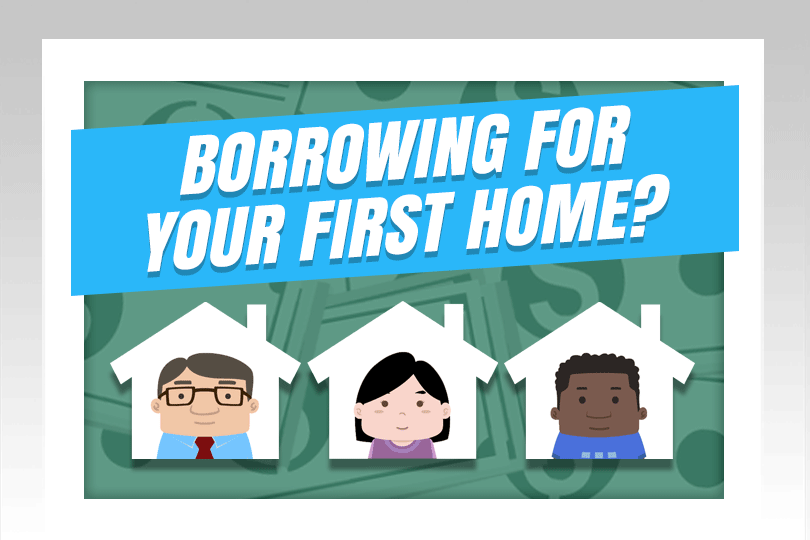Fixed Rate Versus Adjustable-Rate Mortgages
March 21, 2021
A Fixed Rate Loan is one with an interest rate that stays the same for the entire life of the loan. Your principal and interest amount changes from month to month as you pay down the loan, but the total amount you pay in interest is final, making it easier to budget and plan. With a fixed rate home loan, your amortization schedule is clear and complete.
An Adjustable-Rate Mortgage, commonly referred to as an ARM, gets more complicated. An ARM has an interest rate that changes over the loan term. The rate is set below the market rate for an initial, introductory period, which could be up to 10 years. After this initial period ends, the ARM will adjust.
To fully understand how an ARM works, there are a few key terms you will need to know:
- Adjustment Index: The interest rate adjustments on your ARM are dependent on an index that your lender uses as a benchmark. The FHA accepts market index figures of the Constant Maturity Treasury (CMT) index or the 1-year London Interbank Offered Rate (LIBOR).
- Adjustment Frequency. This is the between each interest-rate adjustment. For example, the FHA’s ARMs adjust annually.
- Margin: This is the number that is added to the index rate to determine your interest rate and is disclosed when you sign your loan.
Which One Works for Me?
There are pros and cons to both, the fixed rate loan, and the ARM. A fixed rate mortgage gives borrowers security of knowing how much they owe and the freedom to plan and budget for the future. However, this also means that they can be stuck paying a higher rate in a few years when the market rates drop, unless they choose to refinance.
With its lower interest payments, an ARM is considerably cheaper than a fixed rate mortgage, at least while the introductory fixed-rate period lasts. But borrowers are taking on the risk of a fluctuating market with rising rates in the future.
So which loan type is best? It comes down to each borrower’s needs and plan for the future. It helps to as yourself some questions when deciding.
How much can you afford?
If you are thinking about an ARM, it is important to be realistic. Run the numbers for a worst-case scenario and calculate your highest possible monthly payment. You might need to save during the initial low-interest period and put money away in case rates go up, or even make larger payments during that time so that the total loan is smaller when the interest rate adjustment occurs.
How long will you live in the home?
If this is your starter home, and you only intend to live there for a short amount of time anyway, it makes sense to sign up for an adjustable-rate mortgage and take advantage of the low rates during the introductory period.
In what direction are interest rates heading?
Talk to your loan officer and get their opinion on the market rates. Study trends and decide whether you can take on the risk.
Once you evaluate your needs and answer these questions for yourself, you will have a clearer idea of which option to choose. The FHA offers fixed and adjustable-rate loan options to borrowers and has the same qualification guidelines for both types. Contact your loan officer to take the first step!
------------------------------
RELATED VIDEOS:
Your Mortgage Payment Schedule Is Called Amortization
Information About the Balloon Payment
Reliable Borrowers Can Qualify for a Cash-Out Refinance

FHA Loan Articles
September 19, 2023The FHA Handbook serves as a crucial resource for mortgage lenders, appraisers, underwriters, and other professionals involved in the origination and servicing of FHA-insured home loans. It outlines the policies and requirements for FHA-insured mortgages.
September 13, 2023FHA rehab loans are a specialized type of mortgage loan offered by the Federal Housing Administration that allows borrowers to finance both the purchase or refinance of a home and the cost of needed repairs.
September 8, 2023Borrowers considering an FHA loan should be familiar with some basic loan terminology. These loans are popular among first-time homebuyers and those with lower credit scores because they often offer more flexible eligibility requirements and lower down payment options.
September 2, 2023You may have heard the terms co-borrower and cosigner in connection with your FHA loan process, but aren't sure about the distinction. Both a co-borrower and a cosigner can help a primary borrower qualify for a mortgage, but they have different roles and responsibilities.
August 27, 2023The Federal Housing Administration has specific credit requirements and guidelines for borrowers looking to buy or refinance homes with an FHA loan. In addition to what FHA guidelines state, lenders may have more stringent requirements that may vary from one lender to another.







